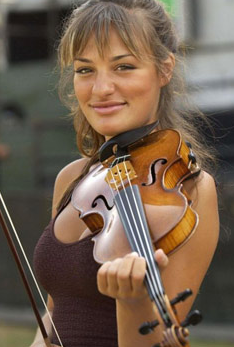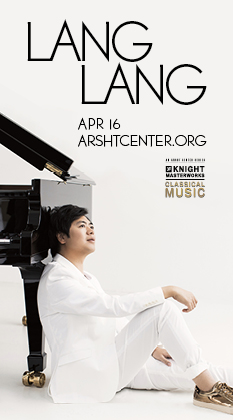Weak soloist apart, the Royal Scottish Orchestra gives a fine account of themselves at the Broward Center

Peter Oundjian conducted the Royal Scottish National Orchestra Monday night at the Broward Center in Fort Lauderdale.
Not many visiting orchestras arrive in South Florida with an endorsement from the world’s best-known monarch. Nor, for that matter, do many attract audiences in which some of the men are wearing kilts.
But that’s how it went Monday at the Broward Center in Fort Lauderdale, as the Royal Scottish National Orchestra launched its first tour of the United States in more than 30 years.
“As Patron of the Royal Scottish National Orchestra, I am pleased to send my good wishes on the occasion of the Orchestra’s 2017 tour to the United States of America, in particular to the state of Florida,” wrote Queen Elizabeth II, in a message that appeared at the front of the program.
On to the music. Under music director Peter Oundjian, the orchestra gave an energetic, polished and emotional performance of the Tchaikovsky Symphony No. 4 and a weak outing of the Brahms Violin Concerto, dragged down by the tentative playing of soloist Nicola Benedetti. (The same program will be performed Tuesday night at the Kravis Center in West Palm Beach.)
Although not as well known as some of the other orchestras that come through South Florida regularly, the ensemble is a good one, with a full-bodied string sound and more-than-capable first chair wind and brass players.
It’s not a promising sign when a music stand is set up for the solo violinist in one of the most famous concertos in the repertoire. And when Benedetti came on stage, she gave a shaky, monotonous, underprojected account, sounding more like an advanced student than an international concert soloist.
She brought some excitement to the performance in her aggressive playing of the solo opening and the repeated passages of gruff ascending chords. But throughout the first movement, she played in a rote manner that left unexpressed the concerto’s drama and lyricism, seeming to struggle with some passages. With her thin, wispy tone, there was little Brahmsian warmth in her account of the main theme on the instrument’s highest string. With her nervous vibrato blaring out here and there, fast passages took on a warbly tone.
In a passage in which the violinist plays two simultaneous tones at intervals of sixths and tenths, she couldn’t manage any vibrato at all on the stretches required for the tenths, producing only a dead sound where a vibrant one is called for. Elsewhere, she seemed to struggle to project much tone at all. In the lyric passages of triples, notes were swallowed up or whiffed over.
The Adagio fared no better. Her diffident manner failed to capture the movement’s drama or tenderness. The climax passed almost unnoticed. The last movement began promisingly, as she tackled the Gypsy-tinged opening with something approaching gusto. But the lack of confidence and authority in her playing weighed down the performance, with fast passages coming across as uneven, with dropped notes and an absence of fire or weight.
With Benedetti off the stage, the orchestra fared much better in the second half, giving a sensitively wrought, exciting account of Tchaikovsky’s Symphony No. 4. The opening brass fanfare was stark but not raw, with deeply resonant tones. Oundjian drew a restless, forward-leaning account of the ensuing melody, carefully calibrating climaxes so when the final fortissimo blast arrived, it did so with unexpected force. The joyous, major-key theme toward the end of the movement took on a giddy, manic tone, giving extra room for shock at the return of the dark fanfare from the opening.
The Andantino was marked by strong playing in the strings, particularly the cellos in their striving, yearning melody. In the Scherzo, the long pizzicato melodies in the strings came off with grace, lightness and elegance. The last movement was finely paced, achieving a forceful momentum that carried to its conclusion.
The concert opened with Borodin’s Prince Igor Overture, in a performance marked by velvety playing in the strings and some rawness in winds and brass.
At the end of the concert, in response to a standing ovation, Oundjian turned to the audience and spoke.
“I know you get a lot of orchestras down here in Florida, but you don’t get many that do this,” he said, before turning and leading the orchestra through a traditional Scottish tune, with violins sawing away and drums thumping, as the audience clapped along.
The Royal Scottish National Orchestra repeats the program 8 p.m. Tuesday at the Kravis Center in West Palm Beach/ Wednesday at 2 p.m. they will perform Debussy’s Prélude à l’après-midi d’un faune, Bruch’s Violin Concerto No. 1 and Beethoven’s Symphony No. 5. kravis.org; 800-572-8471.
Posted in Performances, Uncategorized
Leave a Comment
Tue Mar 14, 2017
at 11:16 am
No Comments






